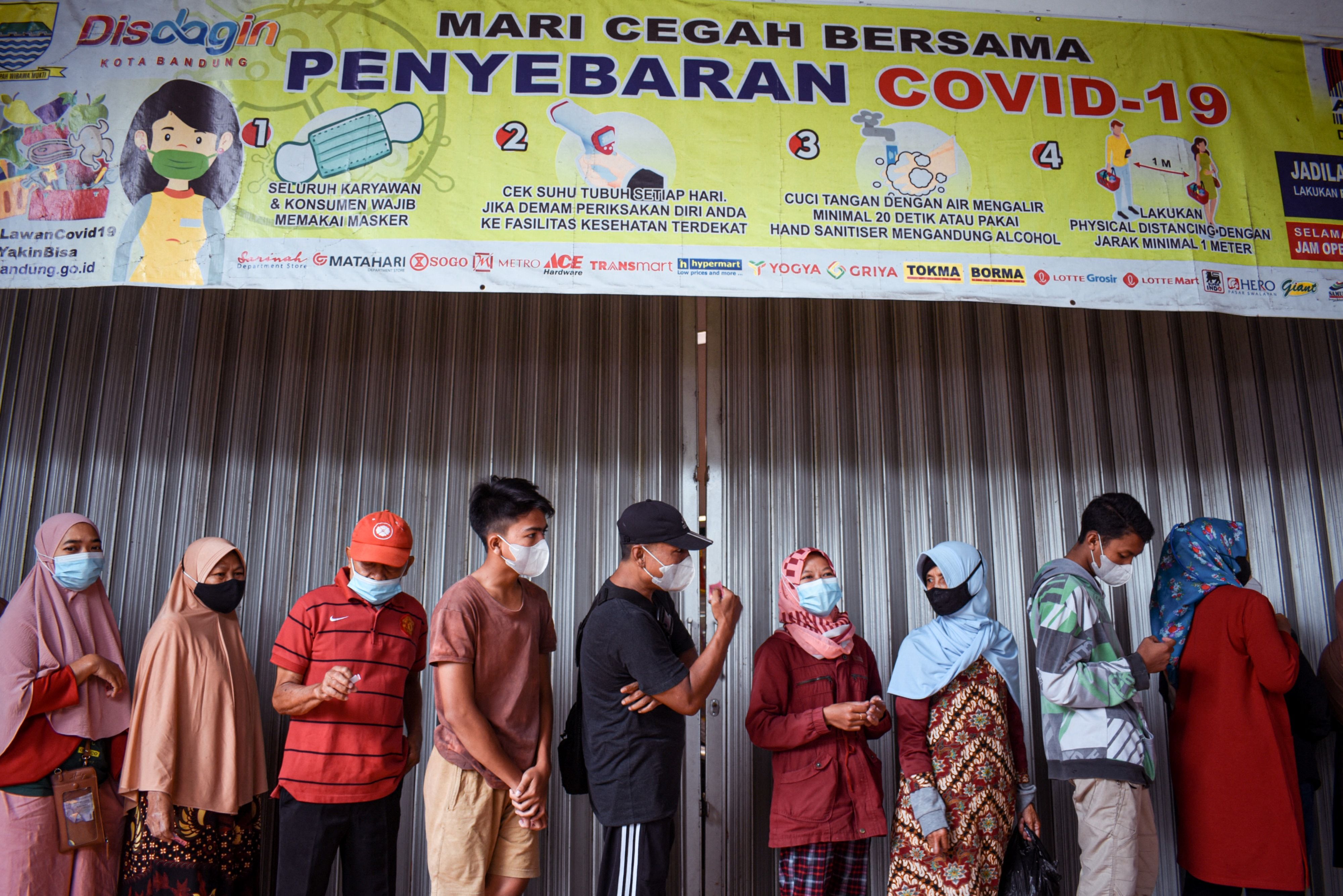Indonesia expects daily new Covid-19 cases to fall below 5,000 in April, says Health Minister Budi
Sign up now: Get insights on Asia's fast-moving developments

Charts issued by Indonesia's Health Ministry showed the Omicron wave peaking last week, before a consistent count decline.
PHOTO: AFP
JAKARTA - Indonesia expects its daily new coronavirus cases to fall below 5,000 in April as two-thirds of its 34 provinces have seen a decline in cases.
"We forecast daily new cases would return to below 5,000 a day within the next 40 days," Health Minister Budi Gunadi Sadikin said early on Thursday morning (March 3).
Charts issued by the Health Ministry on Wednesday showed the Omicron wave peaked at 64,718 daily cases last week, before the count consistently declined. The number of new Covid-19 cases recorded on March 2, about a week after the peak, was 40,920. During the peak of the Delta wave in mid-July, 56,757 daily new cases were recorded.
Prior to the Delta wave, Indonesia's first Covid-19 peak involving the original strain was in late January 2021.
In the latest wave,15 of Indonesia's 34 provinces, including Jakarta, Bali, West Java, East Java, South Sumatra, South Sulawesi and South Kalimantan, have recorded a significant drop in daily cases; eight others that have recorded a more gradual slope down, or are starting to see a fall in numbers, include Central Java, North Sumatra and Lampung, data released on March 2 by the Health Ministry showed.
"Daily fatality rate nationwide… is still on an uptrend, but extrapolating the pattern of the last Delta wave, (the daily fatality rate) would start declining within the next two to three weeks from now," Mr Budi said.
A total of 232 Covid-19 patients died in the past 24 hours to March 3, bringing the number of total deaths to 149,268 since the pandemic began. Indonesia had a total of 5.67 million cases as at March 3.
Like many other countries, Indonesia has reported a surge in Covid-19 cases due to the more transmissible but less severe Omicron variant of the coronavirus.
South-east Asia's most populous country has been praised for accelerating its vaccine roll-out despite the vast geographical challenge: The world's largest archipelagic nation has more than 17,000 islands.
Indonesia has fully vaccinated 69 per cent of its eligible population, while 92 per cent of the people have received the first shot as at March 2, placing it among the world's top five countries with the highest number of vaccinations.
It has also stroked a good balance between health and economy when deciding social and mobility restriction measures to contain Covid-19, as the administration under President Joko Widodo often fended off pressures from rival politicians who regularly opposed the unpopulist tighter restrictions and health protocols.
Indonesia plans to allow quarantine-free travel to its main tourist island of Bali starting from March 14, or earlier, as a try-out, on condition that travellers must have been fully vaccinated, take a polymerase chain reaction test upon arrival and again in the hotel on the third day of their stay.
From March 1, travellers to Indonesia have to serve three days of quarantine, down from the previous five days.
The country's flag carrier - Garuda Indonesia - and Singapore Airlines (SIA) have resumed flights to Bali.
Garuda has been flying to and from Tokyo since Feb 3 and SIA has been doing so to and from Singapore since Feb 16.
Other airlines such as KLM Royal Dutch, Scoot Tigerair and Jetstar Airways are also set to resume flights to the resort island, according to the Indonesian government.
Since Feb 3, Bali has received 1,600 inbound foreign passengers, dominated by travellers from Russia, Australia, France, the United States and the Netherlands, according to the government.


